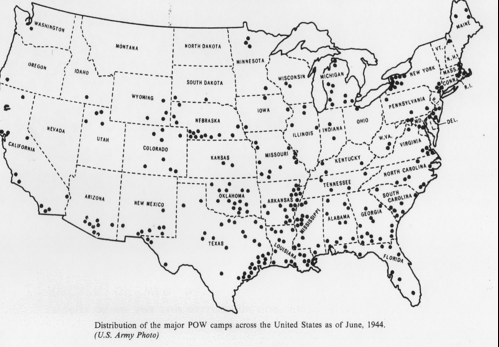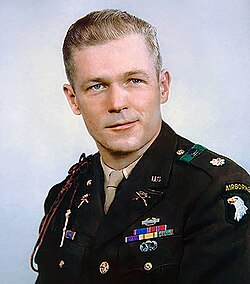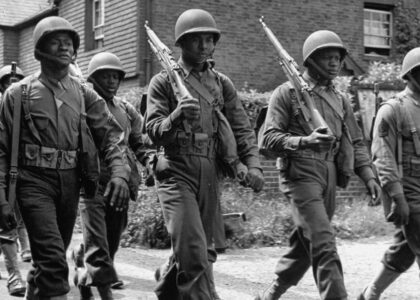As you travel through Stark, New Hampshire, you’re passing through a place with a unique chapter in American history. During World War II, this small town became home to a German P.O.W. camp, a part of a broader network across the United States. The story of German prisoners of war in Stark is a fascinating glimpse into a largely forgotten aspect of the wartime home front.
The camp was established in the early 1940s, during a time when the U.S. was grappling with the challenge of housing thousands of Axis prisoners captured in Europe and North Africa. Stark was chosen for its remote location, which was deemed secure and away from major population centers. The camp in Stark was one of over 500 such facilities in the U.S., and it played a critical role in managing the influx of prisoners during the war.
Life in the camp was regimented but humane, adhering to the Geneva Convention rules. Prisoners engaged in various activities, from maintenance work to educational courses, and even cultural pursuits. Some were employed in local industries, especially in logging and farming, helping to alleviate wartime labor shortages. This interaction with the local community was not without tension, but many prisoners and locals developed a mutual respect.
One notable figure associated with the camp was Commandant Captain Karl Liebknecht, a German officer who became well-respected by his American counterparts for his strict yet fair leadership. His approach ensured that the camp ran smoothly and that the prisoners were treated with dignity.
Over time, the presence of the P.O.W.s became a part of the fabric of Stark’s community life. Stories abound of how some prisoners returned to visit after the war, having developed a fondness for the area and its people. Today, while the camp structures are long gone, the legacy of this period remains in local memories and historical accounts.
The German P.O.W. camp in Stark serves as a poignant reminder of the complexities of war, the humanity that can be found amid conflict, and the unexpected bonds that can form even between supposed enemies. As you pass through Stark, consider the stories that unfolded here and the ways in which history continues to shape the present.




